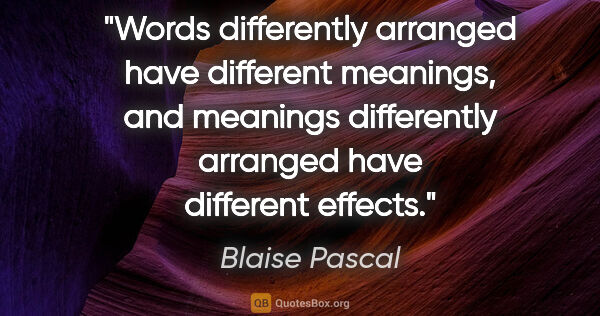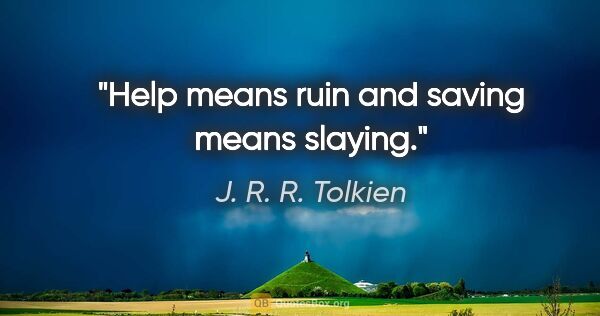Means Quotes (page 13)
The word 'education' comes from the root e from ex, out, and duco, I lead. It means a leading out. To me education is a leading out of what is already there in the pupil's soul. To Miss Mackay it is a putting in of something that is not there, and that is not what I call education, I call it intrusion, from the Latin root prefix in meaning in and the stem trudo, I thrust.
Muriel Spark

This much is already known: for every sensible line of straightforward statement, there are leagues of senseless cacophonies, verbal jumbles and incoherences. (I know of an uncouth region whose librarians repudiate the vain and superstitious custom of finding a meaning in books and equate it with that of finding a meaning in dreams or in the chaotic lines of one's palm . . . They admit that the inventors of this writing imitated the twenty-five natural symbols, but maintain that this...
Jorge Luis Borges
Now I can broach the notion of suicide. It has already been felt what solution might be given. At this point the problem is reversed. It was previously a question of finding out whether or not life had to have a meaning to be lived. It now becomes clear, on the contrary, that it will be lived all the better if it has no meaning. Living an experience, a particular fate, is accepting it fully. Now, no one will live this fate, knowing it to be absurd, unless he does everything to keep before him...
Albert Camus
Alas. What have we done to our good, bawdy, Anglo-Saxon four-letter words? ...We have blunted them so with overuse that they no longer have any real meaning for us. ...When will we be able to redeem our shock words? They have been turned to marshmallows. ...We no longer have anything to cry in time of crisis. 'Help!' we bleat. And no one hears us. 'Help' is another of those four-letter words that don't mean anything any more.
Madeleine L'Engle
A man vows, and yet will not east away the means of breaking his vow. Is it that he distinctly means to break it? Not at all; but the desires which tend to break it are at work in him dimly, and make their way into his imagination, and relax his muscles in the very moments when he is telling himself over again the reasons for his vow.
George Eliot
